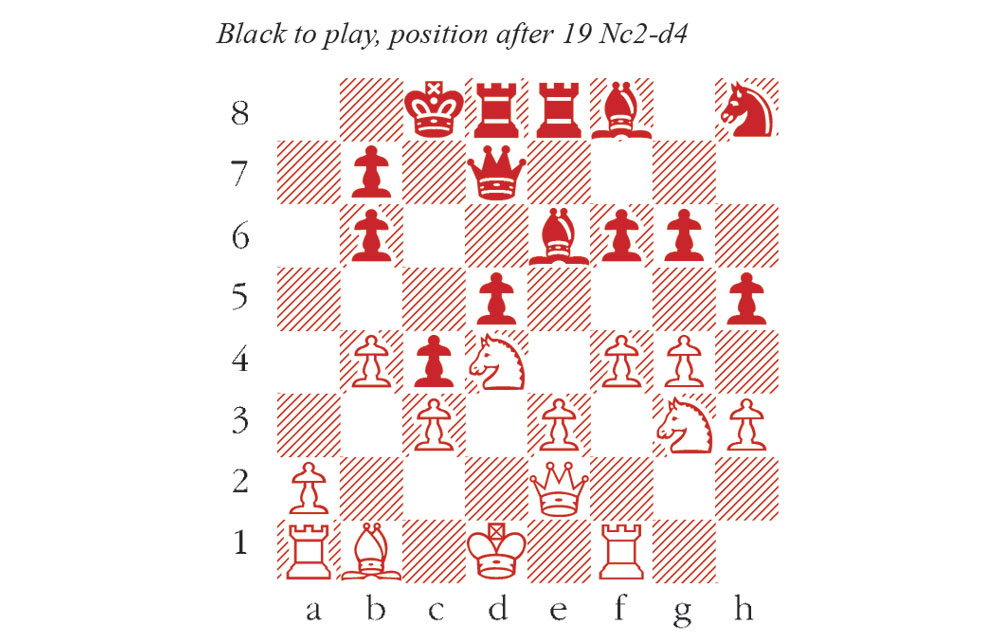‘Chess is a sea in which a gnat may drink and an elephant may bathe.’ I’m fond of that adage, which speaks to the depth of the game in a way that numbers cannot. But how many possible games of chess are there? The mathematician Claude Shannon wrote a paper in 1949: ‘Progamming a Computer for Playing Chess’, in which he estimated that there are at least 10120 (i.e. 1 with 120 zeros) possible games of chess. He noted that with such an astronomically large number, a perfect solution by brute force was infeasible. The reasoning is straightforward. The Dutch psychologist Adriaan De Groot (a contemporary of Shannon) estimated that a typical position may have 30 legal moves, so one move for each side makes for approximately 900 possibilities. Call it 1,000 (i.e. 103) to make the sums easy. After 40 moves for each side, that is (103)40 = 10120 possible games. Quite an ocean.
But in the opening stages, a vast amount of bathymetric research has already taken place. Grandmasters don’t know all the moves in all the positions, but they do know all the standard ideas and plans within their opening repertoires. As a result, most ‘new’ moves that they have to face won’t trouble them at all. Finding an innovation that will challenge one of the world’s best grandmasters can take days or weeks of study. Every year, it gets a little bit harder.
The promise of Freestyle chess (aka Fischer-Random, Chess960, or Chess9LX), where the pieces are shuffled on the back rank before the game begins, is to reset the clock. In this form of the game, even grandmasters struggle to navigate the opening moves, since the familiar setups and plans from traditional chess are of little use. In a sense, this difficulty makes it a playground for elite players, who can give free rein to their skill and imagination, rather than mining their databases for hours before each game.
At least until now, spectators and sponsors have voted with their feet for the traditional game. But a new event, the ‘Freestyle Chess G.O.A.T. Challenge’, was an ambitious attempt to change that, and perhaps it will, since after the event finished, organiser and host Jan Henric Buettner announced his dream of holding a Grand Slam of Freestyle Chess events on five continents. This inaugural event was held at the Weissenhaus Private Nature Luxury Resort in northern Germany, and saw eight of the world’s best take part in a knockout, including Magnus Carlsen, who is keen on this form of the game. Each player was kitted out with a different brightly coloured velvet jacket, creating an impression of Cluedo figurines. It was Carlsen who dunnit, beating Fabiano Caruana in the final round.
The game below was played in the semi-final, and had as a start position: Ra1, Bb1, Nc1, Kd1, Qe1, Rf1, Bg1, Nh1. Black’s setup mirrors that: Ra8, Bb8, etc.
Magnus Carlsen-Nodirbek Abdusattorov
Freestyle Chess G.O.A.T. Challenge, Feb 2024
1 g4 e5 2 Ng3 f6 3 d4 Nb6 4 Nd3 d6 5 f3 exd4 6 Bxd4 c5 7 Bf2 c4 8 Bxb6+ axb6 9 Nb4 d5 10 c3 Bf4 11 Nh5 Bh6 12 f4 O-O-O Freestyle chess has funky castling rules. Here, place the black king on c8 and move the rook from a8 to d8. 13 Ng3 g6 14 e3 Qd7 15 Qe2 Rfe8 16 Nc2 Bf8 17 b4 Be6 18 h3 h5 19 Nd4 (diagram) hxg4 20 f5 Bf7 21 hxg4 Qc7 22 Qf3 Bh6 23 Re1 Bg5 24 a4 gxf5 25 Bxf5+ Kb8 26 Re2 Ng6 27 Bxg6 Bxg6 28 Ngf5 Qe5 29 a5 Qe4 30 Qxe4 Rxe4 31 axb6 Rxg4 32 Rea2 Rg1+ 33 Ke2 Rxa1 34 Rxa1 Re8 35 Rh1 Rf8 36 Nd6 Black resigns






Comments